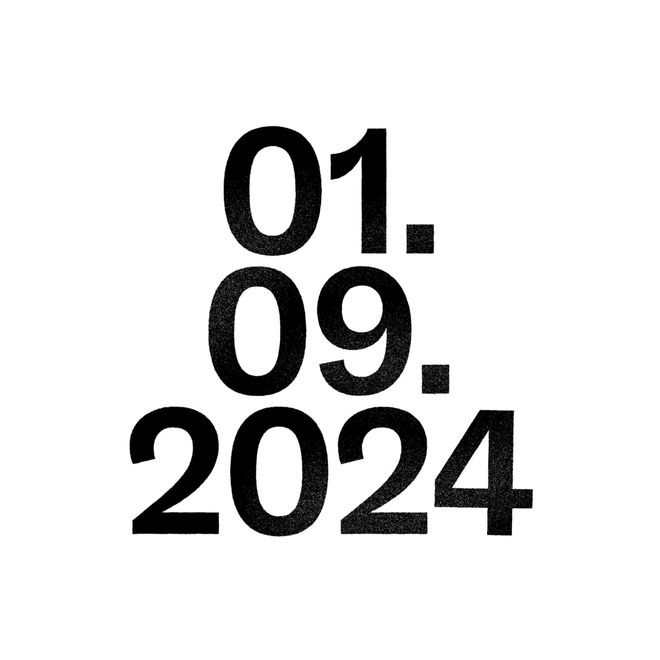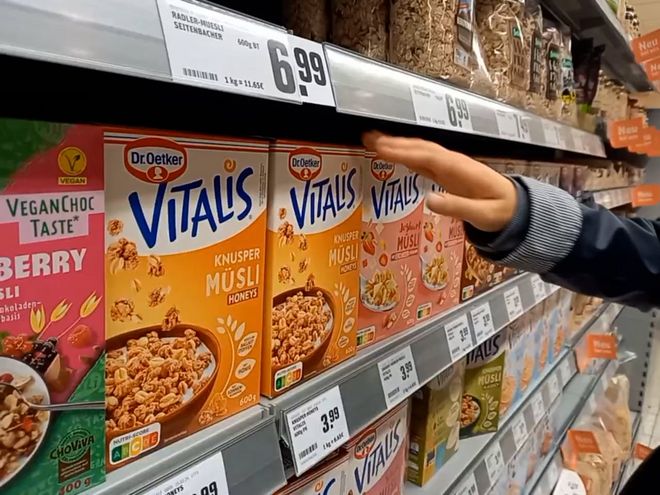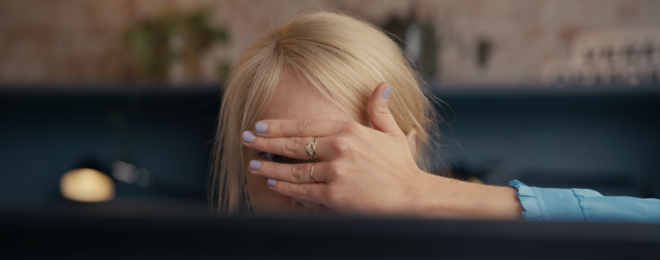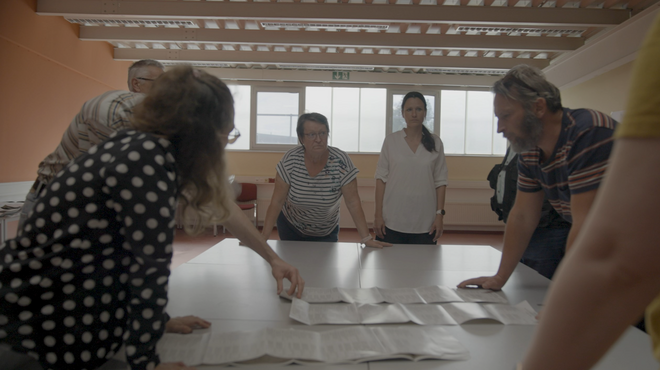Test Bauhaus.Insights: Hier steht die Frage!
»Mit wem gehst du zur Wahl?«
This campaign takes the simple approach of assuming from the outset that people intend to vote in the election. So the question is not whether to vote, but who to go to the polling station with. This question is answered in a series of animations and posters showing unusual pairings on their way to vote, for example a skateboarding granny with her granddaughter. The campaign uses collage illustrations to express this diversity in an abstract and humorous way. People are able to send postcards featuring the campaign motifs to arrange a polling station date with the person of their choosing. The campaign aims to subtly convey that democratic participation is not just a duty, but a privilege – and that it is a social experience that we can have together.

»Mit wem gehst du zur Wahl?«
Click the Play button to load and view external content from Vimeo.com.
Automatically load and view external content from Vimeo.com (You can change this setting at any time via our »Data protection policy«.)
»Die eine Wahl, die wirklich zählt«
»The one choice that really counts« campaign is based on an interesting finding: Neuroscientists have determined that people make around 20,000 decisions every day. Most of these decisions are relatively mundane, like »Should I use the front door or the back door to get on the bus?«, or »Should I pay using cash or card?«. These decisions do not typically have long-term consequences. Deciding who to vote for, on the other hand, influences the political landscape for years. By pointing out the countless trivial decisions we make every day, the campaign aims to highlight the importance of the decision made at the polls. The campaign includes posters and reels, as well as interventions in public spaces. The interventions are visually staged so that people literally stumble across them. In the university stairwell, for instance, the question »Lift or stairs?« is posed, followed by the answer: »Make the choice that really matters on 1.9.«.

»Die eine Wahl, die wirklich zählt«
Click the Play button to load and view external content from Vimeo.com.
Automatically load and view external content from Vimeo.com (You can change this setting at any time via our »Data protection policy«.)
»Keine Angst vorm Kreuz«
The election ad »Don’t fear the cross« works in a hyperbolic sense. Various situations are depicted with people developing a fear of crosses – for instance when looking at grocery lists, road signs and keyboards. These exaggerated images are meant to draw attention the declining voter turnout and to illustrate how unfounded reservations about voting are. Ads and communication campaigns are naturally designed to work as quickly as possible and to convey their message in short narratives. The resulting documentaries complement these campaigns quite well as they can go more in depth in terms of content.

VoteTheFuck - Kreuzphobie
Click the Play button to load and view external content from Vimeo.com.
Automatically load and view external content from Vimeo.com (You can change this setting at any time via our »Data protection policy«.)
»Wahllokal 37 – die Auszählung«
The film »Wahllokal 37 – die Auszählung« accompanies Weimar election workers as they carry out their volunteer work for the European elections. The film gives viewers an inside look at parts of the election day that remain invisible to many, but that are absolutely crucial in the end. It reveals the precision and conscientiousness with which democratic elections are conducted and the commitment of the many volunteers who work to ensure that everything runs smoothly.
Birgit Krüger und Ralf-Uwe Beck in filmischen Interviews
This film includes moving interviews with Birgit Krüger and Ralf-Uwe Beck, the latter of whom was a guest during our project plenary sessions. The two report on their individual experiences as witnesses of the non-democratic GDR system. Birgit Krüger was imprisoned in 1977 in the GDR because she had applied to leave the country. She spent eleven months in prison, separated from her children, before being ransomed by the FRG. Ralf-Uwe Beck was a pastor in the GDR and an environmental activist. In his interview, he describes his life near the heavily guarded inner-German border, his fight against the injustices of the regime, and the spirit of optimism once it ended with all its hopes and missed opportunities. These discussions show the inhumanity of non-democratic regimes, the valuable achievements of democracy and that democratic participation is still possible today.










